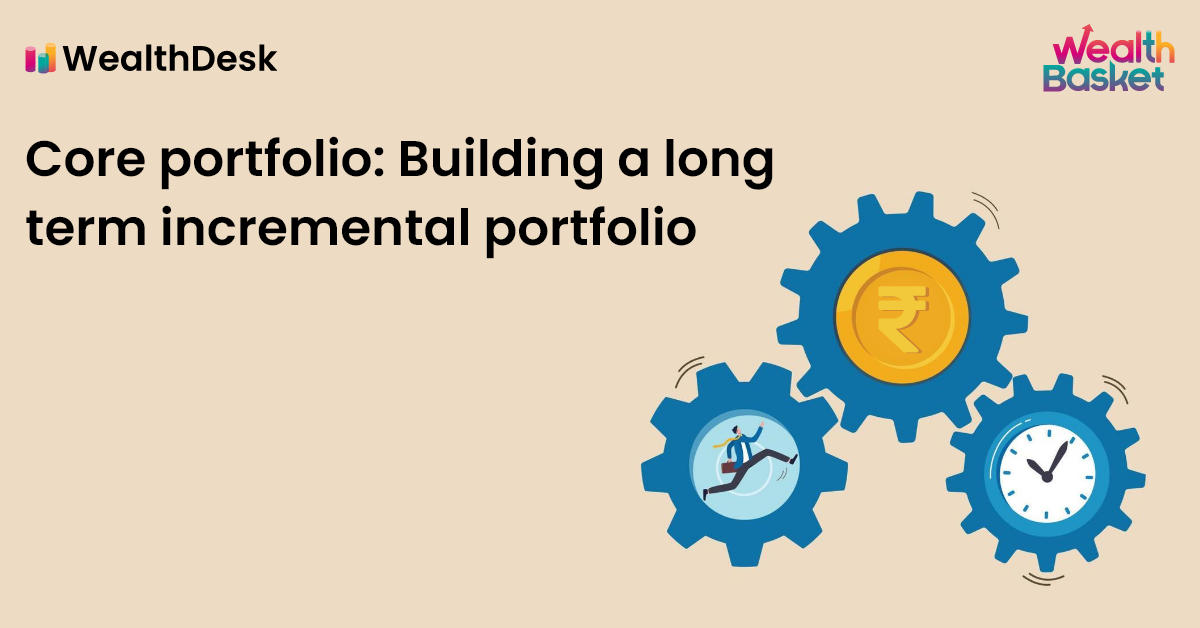Equities provide an excellent opportunity to maximize your returns, provided you invest wisely. There are several ways to invest in equities. For example, investing via mutual funds, tax-saving equity-linked savings schemes (ELSS), the National Pension System (NPS), or investing directly in stocks.
Equity markets are looking even more promising as millions of Demat accounts were opened in FY 2020-21. In fact, between April 2020 and January 2021, as many as 10.7 million new Demat accounts were opened! However, while making a long-term investment decision, investing in equities is just one half of the story, and the other half is about staying invested for a long time.
Let’s talk about Long Term Investments
Long-term investments are made for a span of 3, 5, 10 years, or more. As we all are aware, equity markets are volatile. The simple solution is to keep your money invested, as the volatility is short-lived. As time passes, you’ll see the growth in the right direction. But why do experts always swear by a long term investment strategy?
Let’s look at the Five Benefits of Long Term Equity Investments:
-
Enormous potential to earn high returns
Investing in equity shares for the long term fetches you two types of returns – dividend income and capital appreciation. If the shares have fundamentally strong financials, they can help you earn a regular dividend income. Even if they don’t generate regular dividends, equities are still one of the best long-term investments as they have a high returns-generating potential over the long term.
India has aimed to become a $5 trillion economy by 2024-25. It is expected that the equity market will make a significant contribution to the optimistic Indian growth story. The proof is in the market’s current performance – despite the damaging effects of COVID-19, the equity market is reaching all-time highs. This streak is expected to continue.
-
Beating inflation and maximizing wealth
creation
Unfortunately, people continue to ignore inflation and its considerable effect on long term wealth-creation. When your investment returns are lower than the inflation rate, it causes wealth erosion. For example, if your bank offers 5% interest on FDs but the inflation rate is 5.5%, your wealth will erode by 0.5% every year.
You can avoid this and maximize your wealth creation in the long term by investing in equities, as they can earn a high return. The past performance is enough proof. Stock indexes have always given much higher returns compared to debt and most other investments in the long term.
-
Lower taxes for long-term investments
When you invest in the stock market for a short term (less than a year), you land up paying a higher tax on the profits you generate through these investments. Whereas, when you specifically choose stocks for long-term investments (more than one year), the taxes levied on your gains are considerably lesser. In India, STCG (Short-Term Capital Gains) is taxed at 15%, whereas LTCG (Long-Term Capital Gains) is taxed at 10%.
-
Overriding the possibility of negative
returns
The possibility of a negative return is almost negligible when you invest in equities over the long term (5 years or more). This is simply because the general market trends are always upwards. There are setbacks now and then which can’t be controlled, but they don’t last long. The stock market digests such events and starts climbing up again.
Thus, the long-term prospects of investing in equities are almost always profitable. Make sure you maintain a diversified portfolio.
-
Long-term investments and the power of
compounding
Saving the best for last, let’s talk about the power of compounding. Compounding works the best only when you stay invested for an extended period. It is the most significant advantage of long term investments! If you allow enough time, your assets will grow to their fullest potential. When you pick the right stocks and stay invested for a more extended period, you’ll fetch returns as high as 14%, which is historically proven.
Acquiring financial knowledge will only benefit your investment journey and help you make better investment decisions. Always stay updated with the WealthDesk Blog.
Always keep in mind to never put all your eggs in one basket. Investing in equities depends on your age, risk appetite, expected return, and investment tenure. You should spread your investments across different asset classes, shares, and equity funds if you want to reduce volatility risk. Diversification is key when it comes to a successful long-term investment strategy.
FAQs
Holding stocks over the long term will give you high returns. The returns can be in the form of dividend payments or through capital gains realized upon the resale of securities. Also, the risk is lower when investing for a more extended period as compared to short-term securities.
One of the biggest advantages is the potential of compounding – your invested amount produces earnings, and these earnings get reinvested, and thus the cycle continues. The more time your money stays invested, the greater will be the overall return.
Equity funds invest most of their assets in stocks and other equity-related instruments. The desired returns can only be seen when you’ve invested in the long term.
Generally speaking, staying invested for five years or more is considered long-term, although there is no rule as such. It depends on your financial goals as well as how much risk you’re willing to take.


















